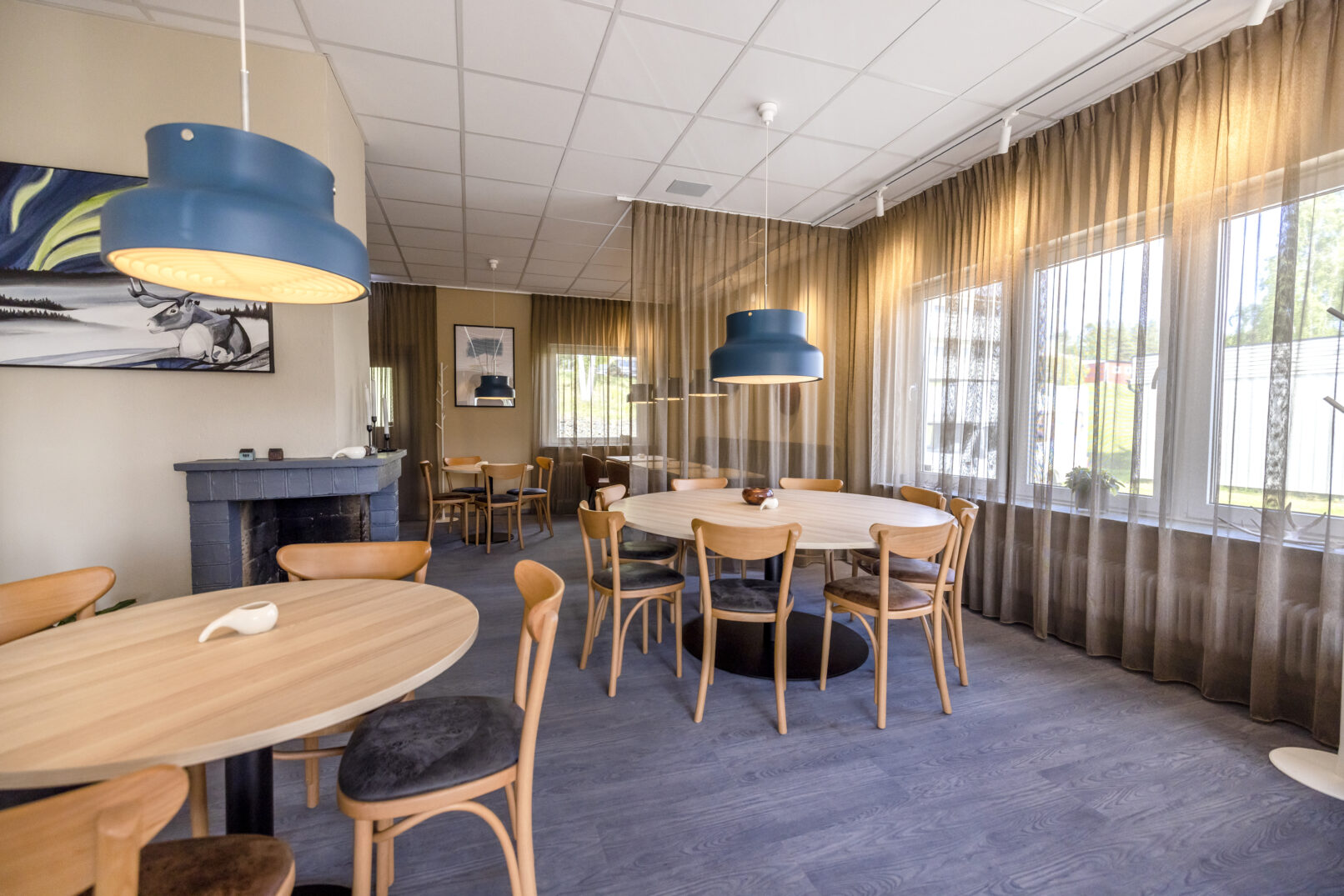Svantes Bistro & Café.
[cbxwpbookmarkbtn]
Inaugurated in the summer of 2022 in an old historic café in central Harads, which had been empty for several years.
The premises are used for restaurant and café activities with full rights. The Bistro & Café is seen as a new meeting place in the village of Edefors, with the aim of being a place for interaction between visitors from all over the world as well as for people who live and work in the area. Svantes Bistro & Café is located along the promenade between the international tourist facilities Arctic Bath and Treehotel.
Svantes Bistro & Café is a new business under the company Svantes Vilt & Bär, which has also incorporated its ingredients into the daily restaurant operations. Here you can enjoy both tasty lunches that reflect the Swedish home cooking, but also rustic dinners with quality ingredients from Svantes vilt & bär - who are proud to be the natural link between nature and your good meal with wild, pure flavors of the finest ingredients. In our café we also offer various Swedish pastries and ice cream.
The environment of our venue has been created by local professionals who together have designed a pleasant place, which appeals to both villagers and tourists. Everything from the design, lighting and craftsmanship has been carefully selected, and has been designed to preserve the history of the venue yet create something modern and innovative.
SVANTES BISTRO & CAFÈ
Edeforsvägen 52
961 78 Harads





